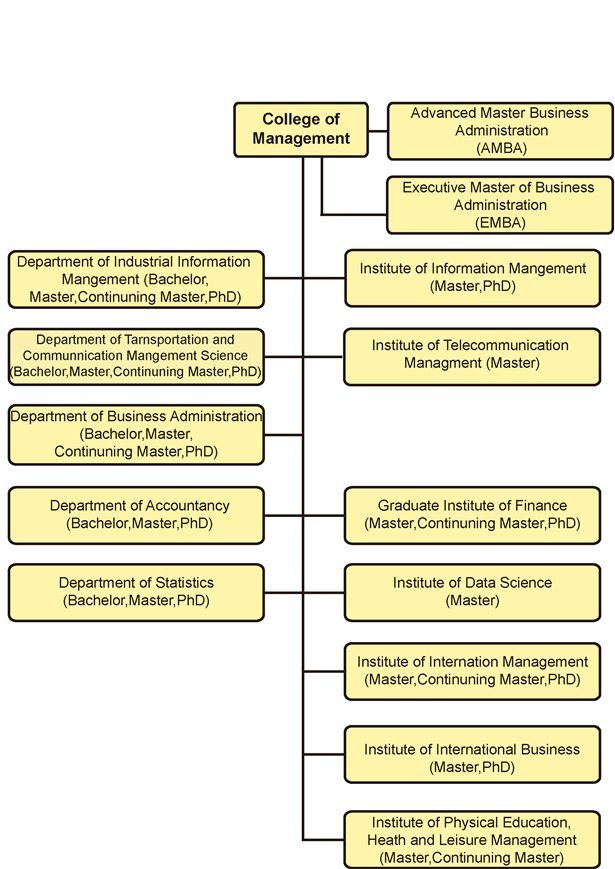The College of Management at National Cheng Kung University was founded in 1955 and is boasting a history of nearly 5 decades. The College now encompasses 5 departments in the Day Division, 2 in the Professional and Continuing Studies Division, 12Master’s programs, 6 In-service Master's programs, and 9 Doctoral programs.
In correspondence to the national economic development and the changing social dynamics as well as considering the Personnel Quota Restriction provisioned by the Ministry of Education, the College has come to operate under the “two graduate institutes under one department” principle since 1998. In support of this principle, the Department of Industrial and Information Management (IIM) administers both the Institute of Industrial Management and the Institute of Information Management, the Department of Transportation and Communication Management Science (TCM) administers both the Institute of Transportation and Communication Management Science and the Institute of Telecommunications and Management, the Department of Business Administration (BA) administers both the Institute of Business Administration and the Institute of International Business, the Department of Accountancy (ACC) administers both the Institute of Accounting and the Institue of Finance, and finally the Department of Statistics (STAT) administers both the Institute of Statistics and the Institute of Risk Management & Insurance (the latter is still in progress). In addition, the Institute of Physical Education, Health & Leisure Studies (PEHL) was set up to support the Physical Education Office of the University and has since come under the administration of the College of Management in August 2011.
The “two graduate institutes under one department” principle facilitates the College’s recruitment of high-level graduate students and the enhancement of its research energy. In recent years, to provide avenues of education for working professionals, the College has founded the Institute of International Management (IIMBA) and offers programs in Executive Master of Business Administration (EMBA) and Advanced Master Business Administration (AMBA).





